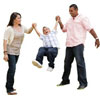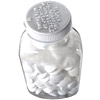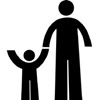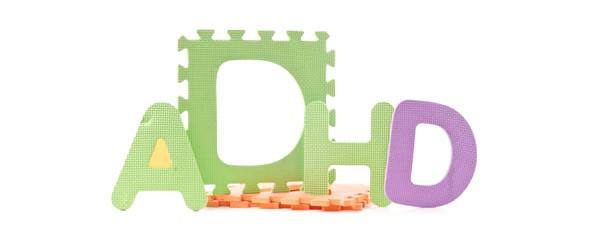Childhood ADHD
- Attention deficit hyperactivity disorder (ADHD)
- Recognising the symptoms of ADHD
- Living with ADHD
- Supportive care
Attention deficit hyperactivity disorder (ADHD)
Childhood ADHD
 | Attention deficit hyperactivity disorder (ADHD) is a behavioural syndrome characterised by hyperactivity and/or inattention leading to impairment in social, academic and occupational functioning. The core group of symptoms of ADHD include persistent impulsivity, hyperactivity and inattention. |
For more information on the condition, see Attention Deficit Hyperactivity Disorder in Children.
Adult ADHD
 | ADHD is best known as a condition of children in preschool and early school years, although the presence of ADHD is increasingly recognised in some adults as a remnant of their childhood conditions. Between 30% and 70% of children with ADHD will continue to display symptoms of the disorder in adulthood. |
For more information on the condition, see Adult ADHD.
Frequently asked questions about ADHD
 | How is ADHD diagnosed, and will my GP know? Can my child learn at school without being medicated? If my partner has ADHD, what are the chances our children will have it too? These are some of the common questions about ADHD. |
For more questions and answers, see ADHD Frequently Asked Questions.
Recognising the symptoms of ADHD
 | Symptoms of ADHD are usually first recognised by parents, teachers and other caregivers. Diagnosis-based DSM-IV criteria is a good starting point; however, a formal psychological and educational assessment is more accurate and useful in identifying the diagnosis and needs of each child. |
For more information, see Recognising the Symptoms of ADHD.
Inattention
 | Once, inattention was thought of as a problem only experienced by children. Now there is growing evidence that significant inattention effects many people of all ages. There are many symptoms of inattention, some very obvious and some more subtle. |
For more information on this symptom, see Inattention.
Hyperactivity
 | Hyperactivity is an excessive level of activity in people compared to what is normally expected for their age. Many normal children may at times be hyperactive or restless, but when the hyperactivity begins to affect performance in school, social relationships or behaviour at home, an underlying disorder may be suspected. |
For more information on this symptom, see Hyperactivity.
Impulsivity
 | Impulsive individuals tend to act without forethought. They may react rapidly and without planning, often without regard to the consequences on themselves or others. Some degree of impulsivity is considered normal in most people. Impulsive behaviour becomes significant when it is persistent, severe, and affects performance at work, in school or in social relationships. |
For more information on this symptom, see Impulsivity.
Living with ADHD
The family impact of ADHD
 | The families of children with ADHD have to contend with a greater number of behavioural, developmental and educational disturbances. This often requires that more time, logistics and energy be spent. It is not surprising that these increased demands are frequently associated with more stress in marital and family functioning. |
For more information on this symptom, see The Family Impact of ADHD.
Stimulants for ADHD
 | Psychostimulants are medications that increase the amount of chemical messengers to stimulate certain areas of the brain. There is good evidence that psychostimulants can reduce symptoms of inattention and hyperactivity/impulsitivity. It is essential that an accurate diagnosis of ADHD be made and confirmed before medication is commenced. |
For more information on this treatment, see Stimulants for ADHD.
FAILSAFE diet for ADHD
 | FAILSAFE stands for Free of Additives, Low in Salicylates, Amines and Flavour Enhancers. The compounds eliminated from the FAILSAFE diet cause adverse reactions in food intolerant individuals, and can also lead to mood disorders, digestive disorders and sleeping problems. The FAILSAFE diet can reduce symptoms of hyperactivity in children with ADHD. |
For more information on this symptom, see FAILSAFE Diet for ADHD.
Supportive care
Learning and Attentional Disorders Society of WA (LADS)
 | The Learning and Attentional Disorders Society of WA (LADS) is a support, information and advocacy agency for people with ADHD and associated conditions. The Mission of LADS is to provide support, advocacy and accurate information to individuals, parents, families and all people affected by ADHD and associated conditions. |
For more information on this group, see LADS.
Dates
Tags
Created by:

 Login
Login














